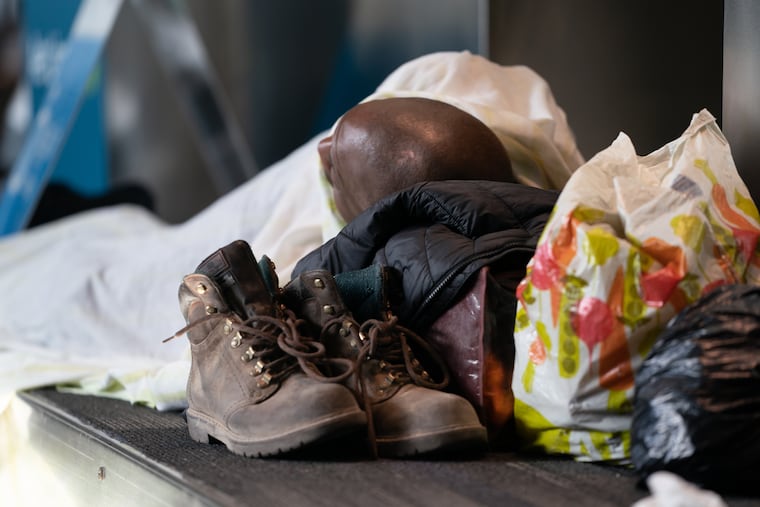Unlike COVID, there is a cure for homelessness: housing | Opinion
City official: Efforts are not enough to protect everyone who is homeless, but we're trying.

The COVID-19 crisis has laid bare the deep health, economic, and racial disparities in our nation. Nowhere have these disparities been more apparent than with homelessness. It has never been clearer that housing is health care. Those who are homeless lack the most fundamental health protections a home provides.
Prior to the pandemic, Philly had made significant progress, reducing street homelessness to a four-year low by investing in evidence-based supportive housing, adding daytime services, conducting extensive outreach, and prevention services. We have the lowest number of unsheltered people of the major cities.
Our homeless system has a robust array of 12,000 temporary and long-term housing options that provide a lifeline to more than 17,000 people a year. Operated by a passionate network of nonprofit providers, half of those beds are long term, offering an actual end to homelessness.
Yet Philadelphia, like all communities, continues to rely on shelter as a cornerstone of our crisis response system. We welcome all — people without ID or money, citizenship, or drug tests, providing equal access to people of all sexual orientations, gender identities, and family configurations.
» READ MORE: City cleared out airport encampment of homeless people, offered tests for COVID-19
Since the pandemic, we have taken steps to make our sites as safe as possible: screening prior to entry, temperature checks, masks and gloves, handwashing, social distancing, grab-and-go meals, de-densified beds, and bed barriers, as supplies are available.
We established an isolation and quarantine site for people who are symptomatic, positive, or awaiting test results, and opened a COVID prevention space to enable those most at risk, people over 65 and/or with underlying health conditions, to be protected from infection when it could be life-threatening.
As a result of these efforts, the known infection rate in shelter is 2%. Of more than 5,700 people who slept in a shelter between March 13 and May 8, fewer than 100 became symptomatic or tested positive. Twenty-four staff reported being COVID positive in that time. Yet, we assume both these numbers are undercounts and that fuller testing will result in a higher positive rate.
To date, everyone in the quarantine and prevention sites has recovered. We are saddened that one person in a shelter has died of COVID. Even one person lost is one too many.
We recognize that even these efforts are not enough to protect everyone who is homeless.
We cannot simply dismantle and replace a 30-year-old system in eight weeks, nor can we effectively end street homelessness in that time. But we are taking steps forward every day.
We are moving aggressively to open additional sites to protect vulnerable individuals, and diving deeper with our partners into shelter safety precautions, planning fuller testing, and forging a housing strategy to avoid moving elderly and people with disabilities back into congregate settings.
We welcome the heightened concern over homelessness. We share it. We invite all to be part of the solution. Unlike COVID, we know how to cure homelessness: housing.
Liz Hersh is the director of the city’s Office of Homeless Services.
The Philadelphia Inquirer is one of more than 20 news organizations producing Broke in Philly, a collaborative reporting project on solutions to poverty and the city’s push toward economic justice. See all of our reporting at brokeinphilly.org.